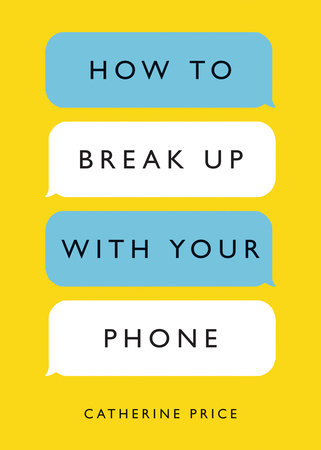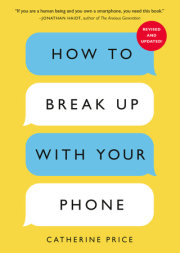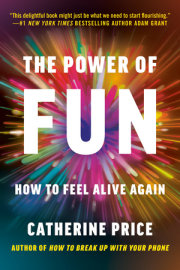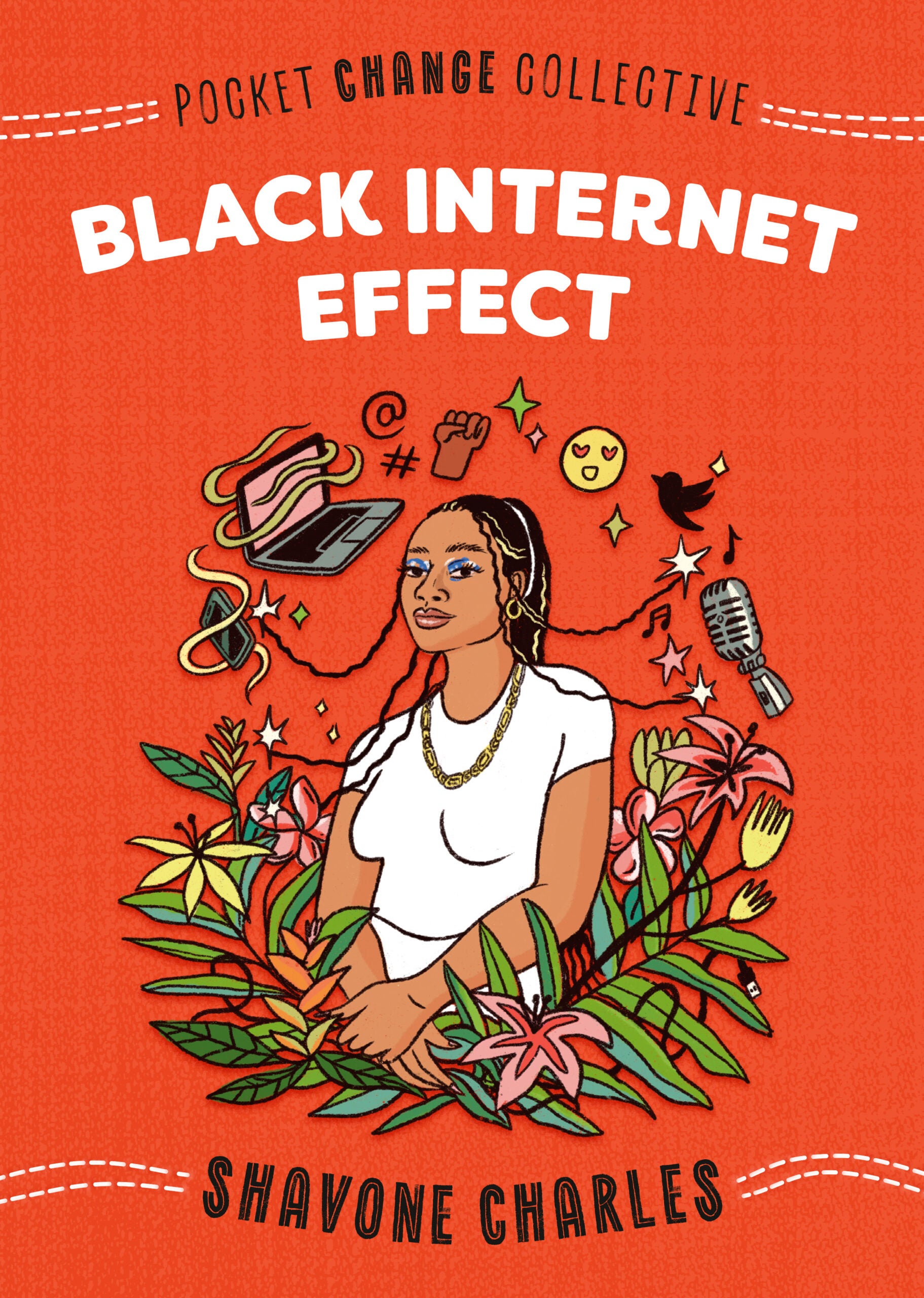Let’s get something clear from the start: the point of this book is not to get you to throw your phone under a bus. Just as breaking up with a person doesn’t mean that you’re swearing off all human relationships, “breaking up” with your phone doesn’t mean that you’re trading in your touch screen for a rotary dial.
After all, there are lots of reasons for us to love our smartphones. They’re cameras. They’re DJs. They help us keep in touch with family and friends, and they know the answers to every piece of trivia we could ever think to ask. They tell us about the traffic and the weather; they store our calendars and our contact lists. Smartphones are amazing tools.
But something about smartphones also makes us act like tools. Most of us find it hard to get through a meal or a movie or even a stoplight without pulling out our phones. On the rare occasions when we accidentally leave them at home or on our desk, we reach for them anyway, and feel anxious, again and again, each time we realize they’re not there. If you’re like most people, your phone is within arm’s reach right this very second, and the mere mention of it is making you want to check something. Like the news. Or your texts. Or your email. Or the weather. Or, really, anything at all.
Go ahead and do it. And then come back to this page and notice how you feel. Are you calm? Focused? Present? Satisfied? Or are you feeling a bit scattered and uneasy, vaguely stressed without really knowing why?
Today, just over a decade since smartphones entered our lives, we’re beginning to suspect that their impact on our lives might not be entirely good. We feel busy but ineffective. Connected but lonely. The same technology that gives us freedom can also act like a leash—and the more tethered we become, the more it raises the question of who’s actually in control. The result is a paralyzing tension: we love our phones, but we often hate the way they make us feel. And no one seems to know what to do about it.
The problem isn’t smartphones themselves. The problem is our relationships with them. Smartphones have infiltrated our lives so quickly and so thoroughly that we have never stopped to think about what we actually want our relationships with them to look like—or what effects these relationships might be having on our lives.
We’ve never stopped to think about which features of our phones make us feel good, and which make us feel bad. We’ve never stopped to think about why smartphones are so hard to put down, or who might be benefiting when we pick them up. We’ve never stopped to think about what spending so many hours engaged with our devices might be doing to our brains, or whether a device billed as a way to connect us to other people might actually be driving us apart.
“Breaking up” with your phone means giving yourself a chance to stop and think.
It means noticing which parts of your relationship are working and which parts are not. It means setting boundaries between your online and offline lives. It means becoming conscious of how and why you use your phone—and recognizing that your phone is manipulating how and why you use it. It means undoing the effects that your phone has had on your brain. It means prioritizing real-life relationships over those that take place on screens.
Breaking up with your phone means giving yourself the space, freedom, and tools necessary to create a new, long-term relationship, one that keeps what you love about your phone and gets rid of what you don’t. A relationship, in other words, that makes you feel healthy and happy—and over which you have control.
Copyright © 2018 by Catherine Price. All rights reserved. No part of this excerpt may be reproduced or reprinted without permission in writing from the publisher.









